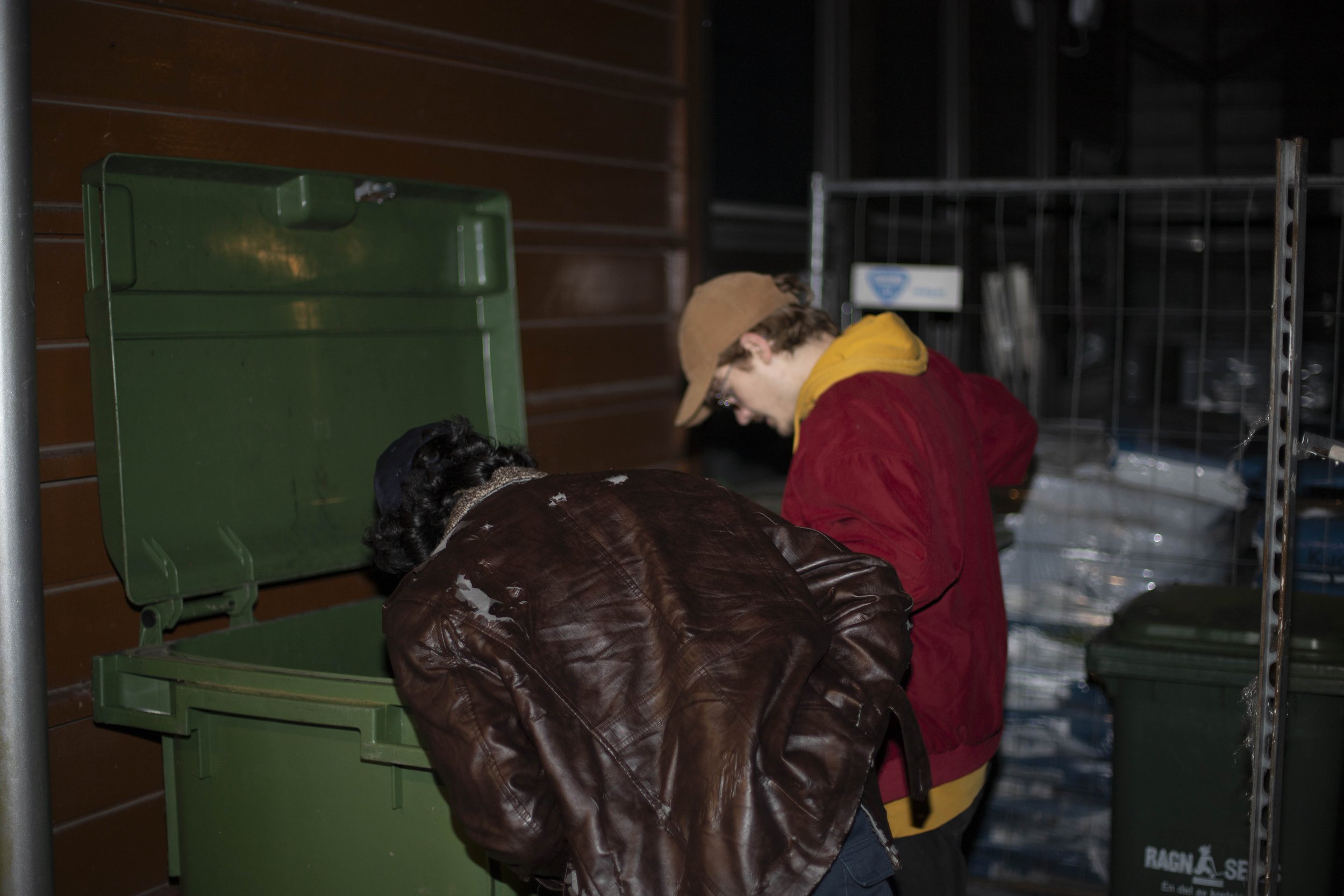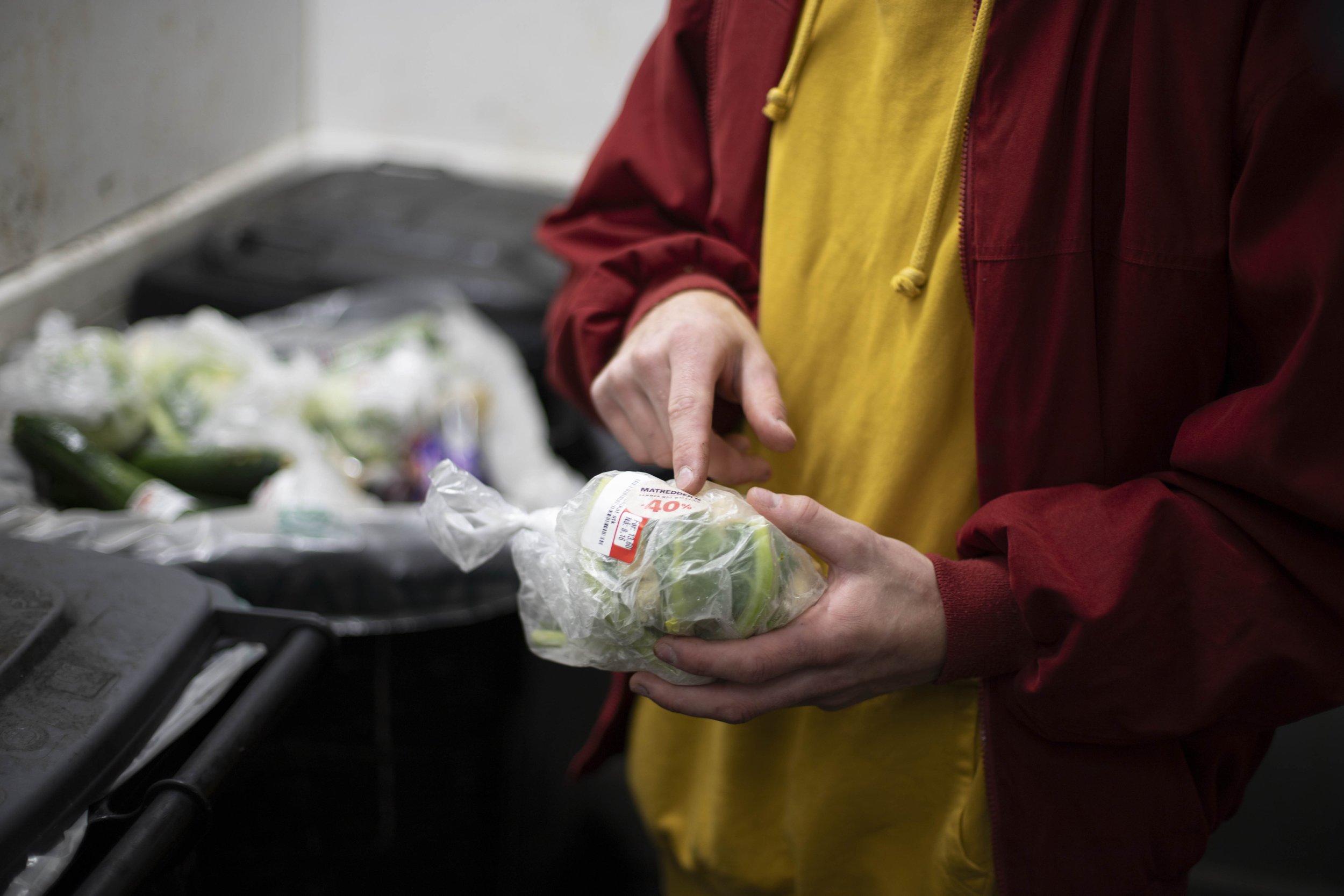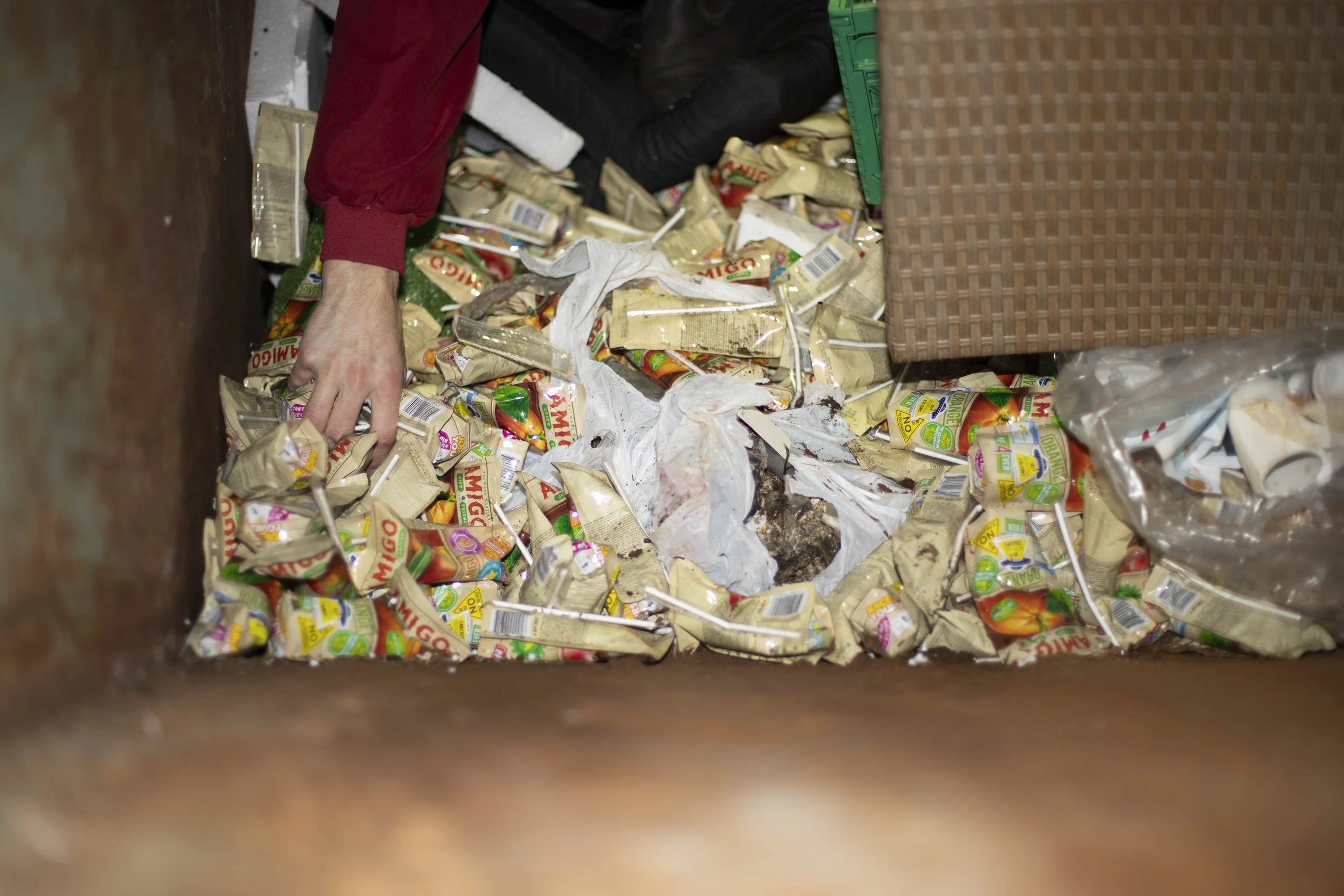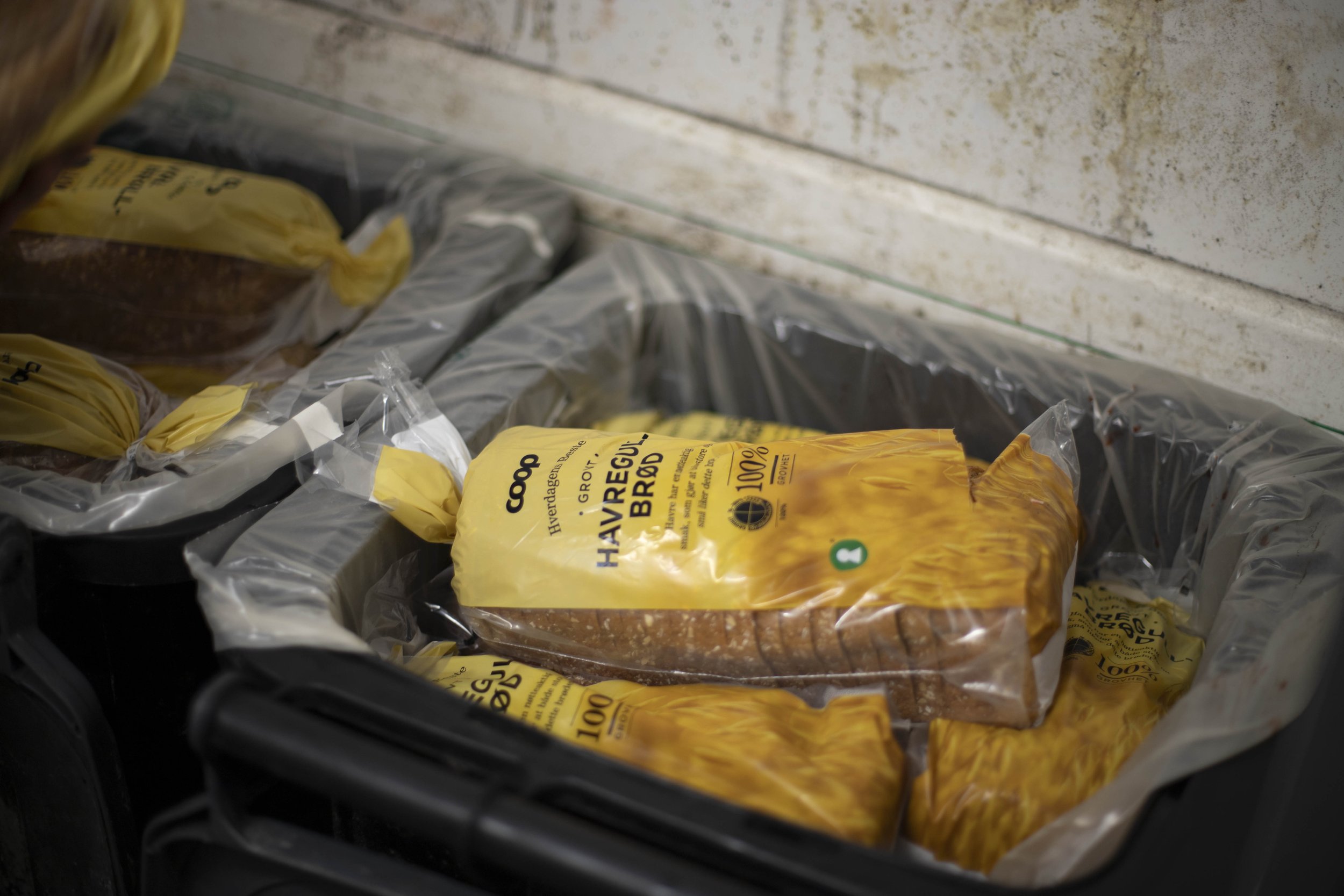TT dumpster dives for what lies hidden in the garbage containers
TT dumpster dives for what lies hidden in the garbage containers
Journalist: Jardar Nikan Alaei
Photographer: Jørgen Berg Yndestad
Translator: Tina Razafimandimby Våje
Dumpster diving is not a new phenomenon. Usually, dumpster diving has been associated with extreme poverty and people who’ve had no other option than to search in bins for their next meal. However, it’s not unique to these images – with a greater consciousness around climate issues, dumpster diving has become more and more common. Some people view it as a dangerous or scary activity, but is it really that bad?
The background for dumpster diving
Our editorial team got in contact with the NMBU student Jorne Jasper, who dumpster dives one to two times each month. Tuntreet joined to see him in action. He tells us that everything started while he was in high school, after having seen pictures and videos on social media of perfectly fine and edible food being found in garbage containers. “It sparked my interest, but it wasn’t until I got to Ås and met people that did it that I started myself”, he recalls. Jorne’s motivation for dumpster diving is to reduce our food waste. The food we throw away represents a lot of emissions during production. He feels frustrated when seeing so large quantities being thrown away: “I didn’t know the extent of food waste. My understanding is that the world has changed”.
The rules
You can find some general rules for dumpster diving online. One is to not dumpster dive while the stores are open. This is to not be perceived as a problem for the stores.
Another example is to keep the containers as clean as possible. Jorne explains that “those who dumpster dive don’t have any wish to sabotage the stores, and you should avoid being a liability to them.” The night we joined Jorne, we saw that he also picked up trash that was around the bins and threw it in them.
An observation from the night of the dive
During the evening, we discovered packaged grapes and food that hadn’t even expired. Norway has a law that states that one has the duty to gather and properly handle waste with packaging. In §7 to 9d in “Forskrift om gjenvinning og behandling av avfall» (2022), that packaging waste sorted for material recycling should not be used for energy recovery or landfilling – packaged food is burned instead of being composted," Jorne explains.
Propositions for better measures
He wishes that there was more thorough follow-up on the food waste from grocery stores. One idea could be to have a supervisor for the waste in the stores’ containers. In addition, this person could add constructive advice where there is room for improvement. Jorne hopes that Norway goes through with the “matkastelov” (the food waste law) and that more food will be given away to charity rather than being discarded.
Community building by sharing food
Jorne tends to include his friends when dumpster diving. His first time dumpster diving was with a good friend. Ever since, he’s invited more people that are interested. He tells us that it’s nice to go alone to be able to listen to music and have some personal time. He admits that he was scared in the beginning, “but since then, it’s always ended well”. He doesn’t experience any stigma around dumpster diving. “At Ås, a lot of people are open about the topic of dumpster diving. Jorne says that a lot of the food he finds is being given to food sharing Ås, a student organization that gather food and share it for free.
The law’s position
As of now, there are no specific laws around dumpster diving in the penal code. We have a rule about small-scale theft (§323 and §321 in the penal code), which applies to the taking of items of low value that belong to others, without permission. This is interpreted as a grey area in the law, and the paragraphs’ enforcement depends on whether the owner of the food waste meant to throw it away or not. If it was meant to be discarded, dumpster diving is not seen as theft. However, violations of property rights might be taken into account. For example, it could be deemed illegal if the waste is found on a private area, especially if there has been put up obstacles like fences and locks to protect the trash containers. Taking waste from open bins on the streets is considered legal.
No comment from the stores
Tuntreet have tried to get in contact with the grocery stores in the area around Oslo to hear their thoughts about dumpster diving and that several stores have started to lock their containers. Unfortunately, we didn’t get any responses. The program Distriktnyhetene Midtnytt (local news in the central region) on NRK had a segment about dumpster diving (04.04.2017) where a store owner shared that the reason why his store was locking the bins was to keep vermin away and to ensure that bad food was not being eaten. This could be reasons for other stores to lock their containers, as well.
Tips and encouragement
Jorne encourages all that are interested, to dumpster dive. “It’s not scary. I’ve heard of very few instances where people have been fined for it”. Jorne tells us that he’s never experienced any physical discomfort from the food he’s found. “As long as you use your senses and are a little conscious about expiration dates, there’s no danger.”







